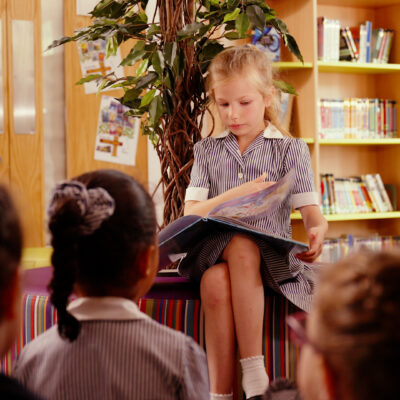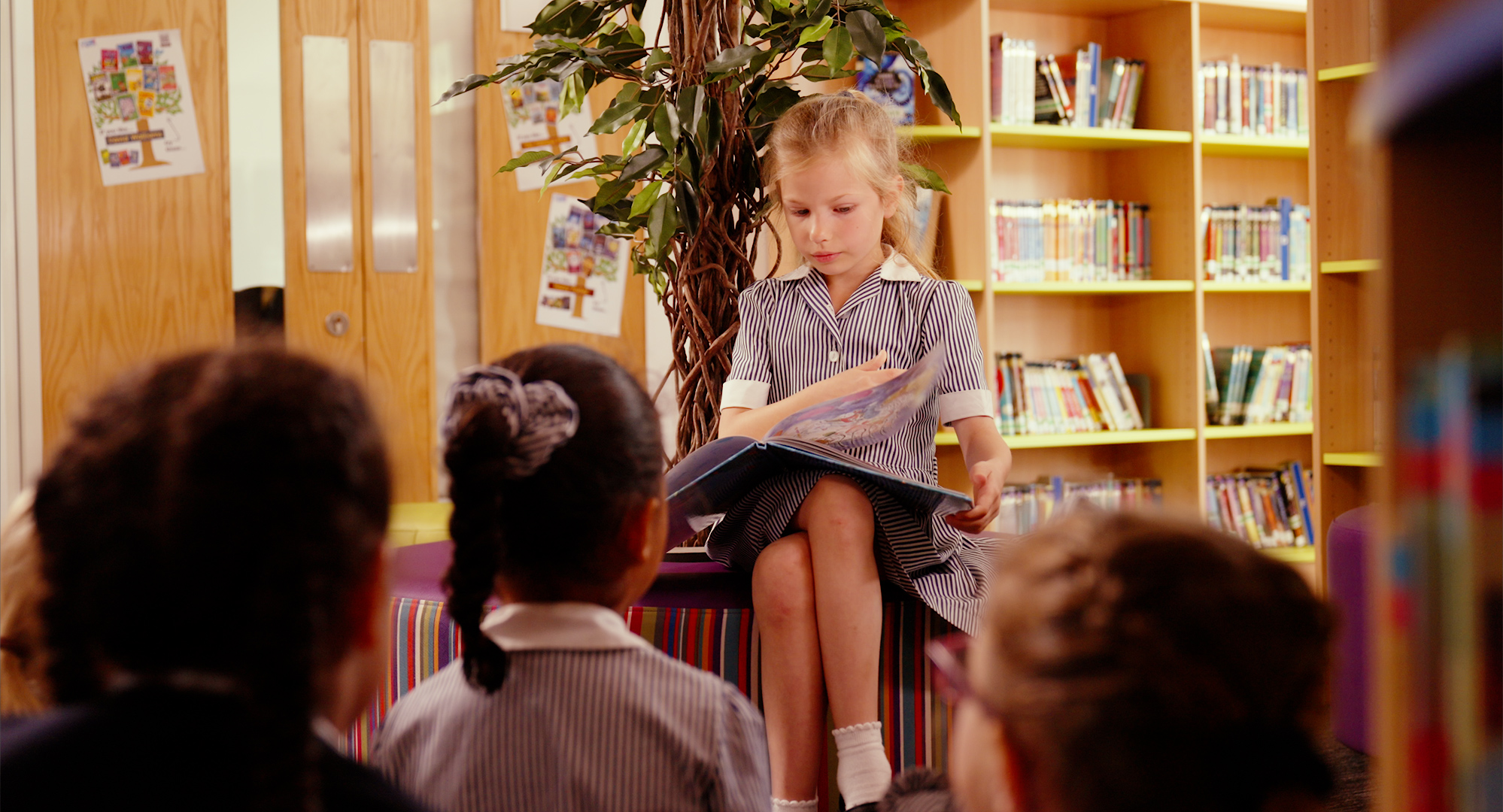

Croydon High Junior School
A Junior School curriculum
for every girl, every day
“At the heart of our curriculum is an ethos of empowering and inspiring girls. We encourage educational risk taking and constantly reinforce the fact that mistakes are a crucial part of learning”
At Croydon High Junior School, our curriculum is based on the GDST’s founding aim that their schools should be ‘places not only of instruction, but of education in the true sense of the word, which provides a training of the individual girl by the development of their mental and moral faculties.’ This holistic view of education and of the value of the individual is at the heart of our curriculum. Emphasis is placed on excellence and innovation, combined with breadth and balance. All pupils have access to a high-quality learning environment so that they can maximise their talents and reach their full potential.
We recognise that pupils learn effectively when they are relaxed, happy and confident. Junior pupils are encouraged to ask questions, make choices, solve problems and to take academic risks. The aim of the Junior curriculum is ‘to develop fearless, resilient and emotionally intelligent lifelong learners’ and is designed to ensure a balance between knowledge and skills and meaningful links are made where possible.
For more detail on specific areas of our curriculum, please see below:
-
Our Mathematics curriculum is based upon a Mastery approach to teaching and learning. This approach means, regardless of their starting point, pupils strive to acquire a deep, long-term, secure and adaptable understanding of Mathematics. Our bespoke programme, Maths Keys, is used to support this process and pupils are encouraged to learn and recall key facts alongside the development of conceptual understanding. We personalise learning to meet the needs of all learners through scaffolding and opportunities to deepen understanding through reasoning and problem solving. There is a lot of experimentation and discussion in our Mathematics lessons as girls discover patterns, explain their thinking and justify their answers. They quickly learn that real mathematicians do not always ‘know’ the outcome when they start working on a problem, and that an incorrect answer can be just as useful as one that is correct.
-
Our English curriculum has reading and real literature at its heart; stories with plot and characterisation as opposed to books that are produced for the sole purpose of helping children to learn to read. We encourage girls to move from structured schemes to real literature as soon as we feel they are ready. As with everything we do, this happens for each girl at their own pace. Our ‘free readers’ choose their reading books from our well stocked library which is a hub at the centre of our school, a place where girls talk about stories and share recommendations with friends. Writing is also taught within the context of real literature or a real purpose. Whatever genre is being taught, from newspaper articles to fantasy settings, from persuasive letters to adventure stories, each new genre begins with analysing real examples to demystify the writing process. Girls then use their new-found understanding of the features of a genre to become writers themselves.
-
This aspect of teaching and learning is one of several unique features of our junior school offering.
Specialist teaching begins for many subjects, such as Music, Drama and PE, in Nursery. Our specialist teachers are experts in their subjects and teach all girls across the Junior School, watching them develop in their subjects over many years. They inspire girls in their subjects as well as encourage participation in extra-curricular clubs in their area.
Enterprise Technology, our bespoke Computer Science curriculum, is taught from Nursery and by Year 6 our girls are well beyond age expectations. What is unique about our Enterprise Technology curriculum is our focus on girls becoming ‘designers of’ not ‘users of’ technology. Alongside programming, coding, robotics and presentation, girls develop collaboration, creativity and problem-solving skills that will all contribute to their future career aspirations.
We have a dedicated Junior languages teacher who introduces French to pupils in Nursery. French is taught to all year groups with the aim of our girls becoming confident linguists by the end of Year 6. Girls are also introduced to Latin in Year 6 and there are many opportunities for language study beyond timetabled lessons. Co-Curricular Clubs, such as Spanish and Latin Acting Club, provide opportunities for pupils in other year groups to develop a love of languages. As well as establishing a solid linguistic foundation, the girls enjoy a range of activities including songs, games and role-play which bring the languages to life.
Specialist Art teaching begins in KS2 with our dedicated Junior Art teacher. We believe Art helps develop the whole child. It teaches them how to look, a way to express feelings, how to communicate beliefs and express ideas. In our art lessons pupils enjoy combining ideas, imagery and techniques from contrasting sources to communicate ideas. Our projects are often issue led, with lots of collaborative opportunities, working with a variety of materials and techniques. Our KS2 artists are not seeking perfection but building their confidence and skills in order to take creative risks. We focus on our journey through ideas and experiments, and that leads to some exciting creations.
-
This is a central part of the Junior School curriculum and informs our planning and teaching at all stages. We carry out a range of formal and informal assessments throughout the year and our small classes mean that staff really know the girls and are able to cater for them as individuals.
Our partnership with parents is something that we value very highly. There are two formal opportunities a year for parents to meet with their daughter’s class teacher to discuss progress and we provide written reports at the end of every term.
However, staff are always happy to meet with parents on a more informal basis and this ‘open door’ policy ensures that communication between home and school is seamless.